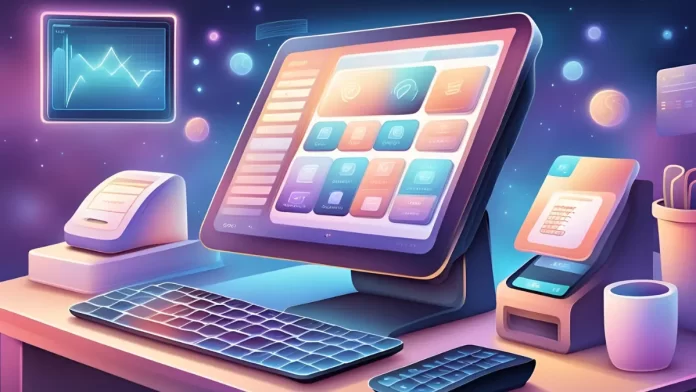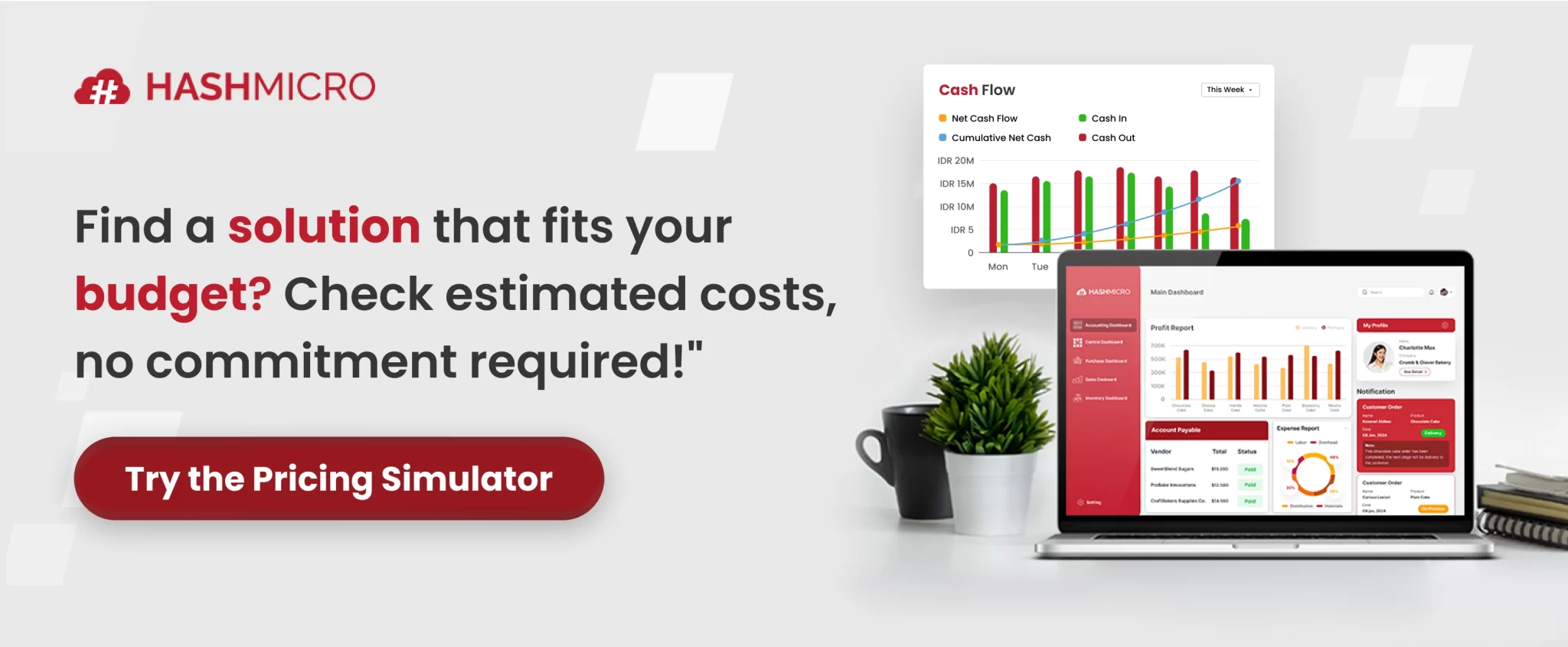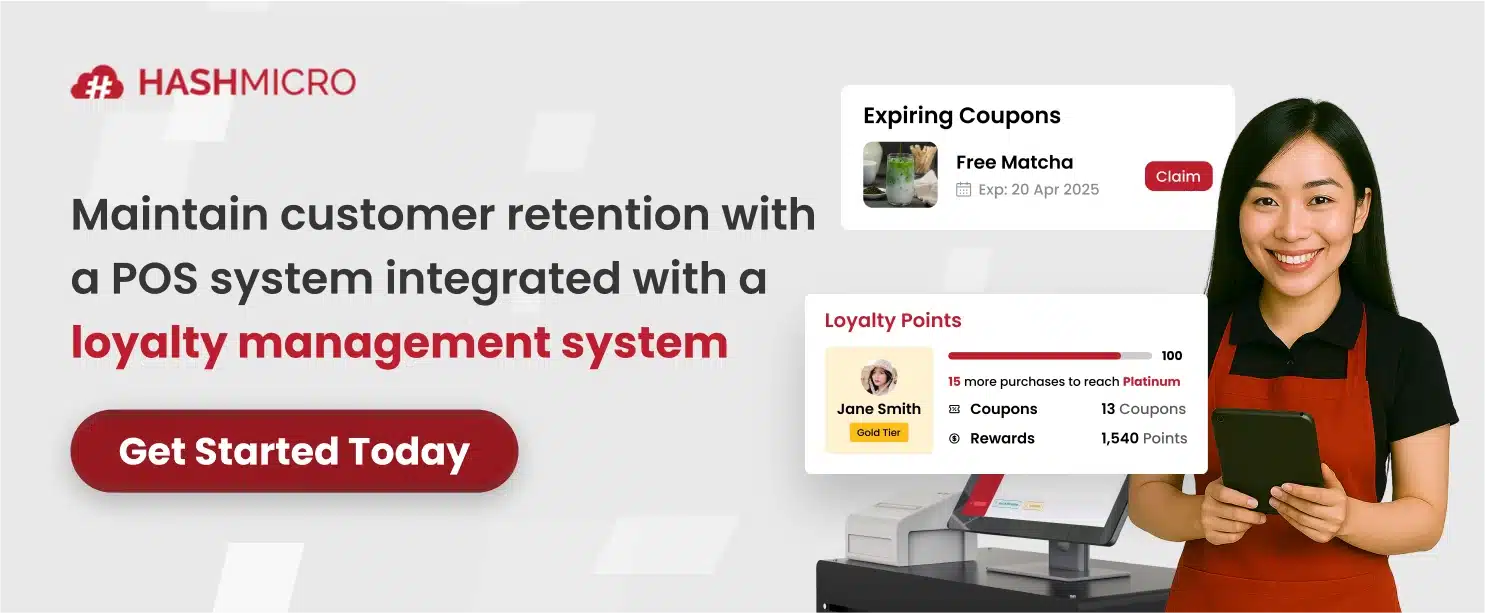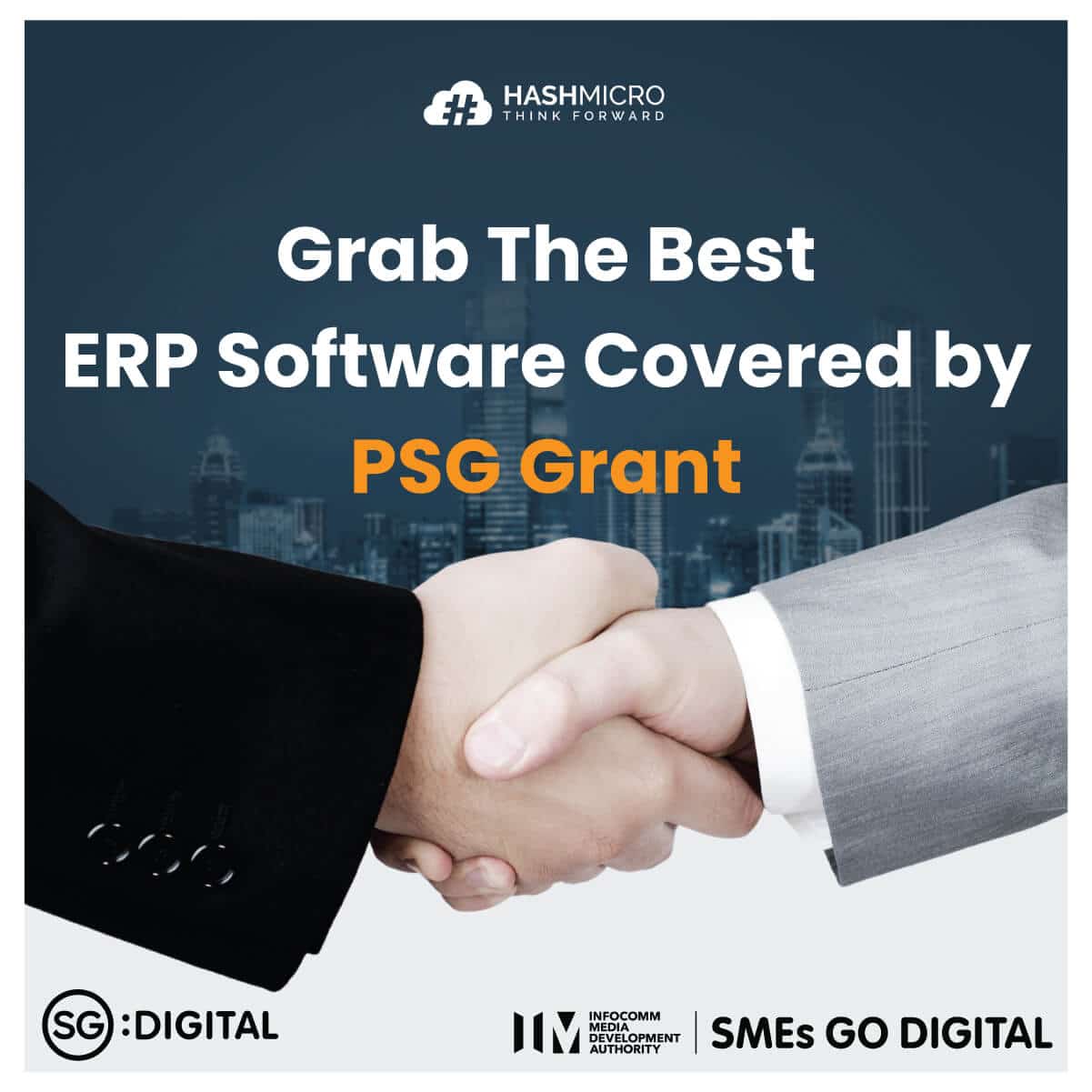Did you know that Point-of-Sale (POS) software is becoming increasingly essential for businesses today? This rising demand is fueled by consumers’ expectations for faster, more convenient, and tech-driven shopping experiences.
In Singapore, adopting the right POS system does more than streamline transactions. It can boost profitability by improving efficiency, simplifying daily operations, and enhancing customer satisfaction.
But with a wide range of solutions on the market, how do you find the one that fits your business needs? Keep reading to explore the nine best POS software options in Singapore for 2025 and get practical tips for selecting the ideal system!
Key Takeaways
|
What is POS Software?
POS software is an integrated platform designed to support the daily operations of retail and F&B businesses. It streamlines various tasks, from accepting payments to printing receipts and tracking inventory.
In addition to handling front-end operations, POS software also captures valuable sales data that can be used for reporting and strategic planning. Businesses can make informed decisions to improve efficiency, manage stock levels, and enhance customer experiences by analyzing the data.
Why Does Your Business Need POS Software?
A POS software solution is essential in boosting productivity and ensuring smooth operations. Based on its function, using POS software will benefit your business in various ways, such as:
- Automate accounting and inventory management
POS software can automatically reconcile payments and sales data. It also syncs inventory across sales channels, keeping stock levels accurate in real time.
- Accept payments anywhere
POS software enables on-the-go payments through mobile apps, turning handheld devices into portable checkout counters. A mobile restaurant POS system even allows some terminals to operate independently without needing a phone.
- Track performance and make smarter decisions
POS software provides insights into sales trends, product performance, and seasonal demand. This data helps you identify what’s working and plan better strategies for business growth.
- Simply daily operations
POS software speeds up checkout by automatically calculating prices, taxes, discounts, and service charges. It can also be connected to receipt printers and store customer details for easier record-keeping.
Read more: What Is Retail Software? Types & 15 Best Solutions in 2026
All-in-One POS Software for Growing Businesses in Singapore

Some providers deliver scalable POS solutions that support growing business needs without overwhelming costs. For example, HashMicro offers a customizable POS system with advanced features such as inventory tracking, CRM, accounting, purchasing, and HRM designed to streamline operations and improve overall efficiency.
Meanwhile, HitPay provides a POS system tailored for small retailers and startups. It offers core POS functionalities without the burden of recurring software fees. Businesses only pay per transaction, making it a cost-effective choice for maintaining operational efficiency while keeping overhead low.
How to Choose the Right POS Software for Your Business
Whether you operate a retail or food and beverage business, selecting the right POS system in Singapore is crucial. Choosing a system that supports popular local payment options and integrates smoothly with accounting tools is essential.
A well-suited POS solution will improve daily operations and enhance customer experience. Here are four key considerations to guide your decision:
1. How well does the POS software support your business?
Evaluating how well a POS solution can handle your current needs and plans is essential. Your POS software should be flexible enough to keep up with your business’s evolution.
Essential POS features to manage daily operations
- Inventory tracking: This feature must help you maintain accurate stock levels, prevent overselling, and streamline the reordering process whenever a sale is made.
- Accounting integration: POS software should integrate with accounting tools to simplify bookkeeping and payment reconciliation, saving valuable time and reducing manual errors.
- Streamlined payment process: POS software should enable smooth transactions, covering everything from pricing and payment collection to issuing receipts.
- Flexible pricing configuration: Look for POS systems that adjust prices for service fees, surcharges, or taxes. It can speed up billing and minimize confusion.
Supporting business expansion
- Scalability for growth: Consider POS software with features that accommodate future expansion, including support for temporary staff or pop-up events.
- Regional compatibility: Ensure your POS solution supports payment methods commonly used in your target market. For instance, if you’re eyeing Indonesia, your POS should be compatible with the local system for smoother transactions.
2. What POS hardware do I need?
Some POS vendors offer bundled hardware packages, while others allow you to purchase the necessary equipment separately. Here are some common types of POS hardware:
- Customer-facing screens: These displays show itemized prices as they are scanned or entered to keep customers informed in real time.
- POS terminals and card readers are essential for processing digital payments, including credit and debit card transactions, and offering a smooth and secure checkout experience.
- Receipt and label printers: These devices are handy for retail operations. They allow you to print receipts, price tags, or product labels quickly and efficiently.
- Tablets with stands are ideal for businesses that need flexible order-taking and payment solutions. They are instrumental in F&B environments where staff can take orders tableside or at the counter.
3. Does the POS machine offer the payment methods you need?
While most POS system Singapore can handle standard credit and debit card transactions, it’s essential to ensure the system also supports the preferred payment options of your target market.
In Singapore, beyond the usual card payments, consider whether your POS machine is compatible with:
- Buy now, pay later (BNPL) services, such as Atome, offer flexible payment options for customers.
- Local digital transfer options like PayNow are widely used for fast, direct bank payments.
- Popular e-wallets, including GrabPay, ShopeePay, Apple Pay, and Google Pay, cater to mobile-savvy consumers.
4. How much does your POS system cost?
The cost of a POS system can vary depending on the number of outlets you operate and the number of users or devices required. Some providers may charge extra for additional terminals or advanced features.
When planning your POS budget, consider these potential expenses:
- Initial hardware investment, such as purchasing POS terminals or accessories
- Recurring costs, including monthly subscriptions or software rental fees
- Transaction charges for processing payments
- Additional expenses, like licensing, system upkeep, or hidden service fees
9 Best POS Software for Growing Systems in Singapore
Discover the nine best POS software solutions in Singapore for 2025, designed to improve operational efficiency, simplify payment processes, and support seamless integration that helps businesses make data-driven decisions and deliver better customer experiences.
1. HashMicro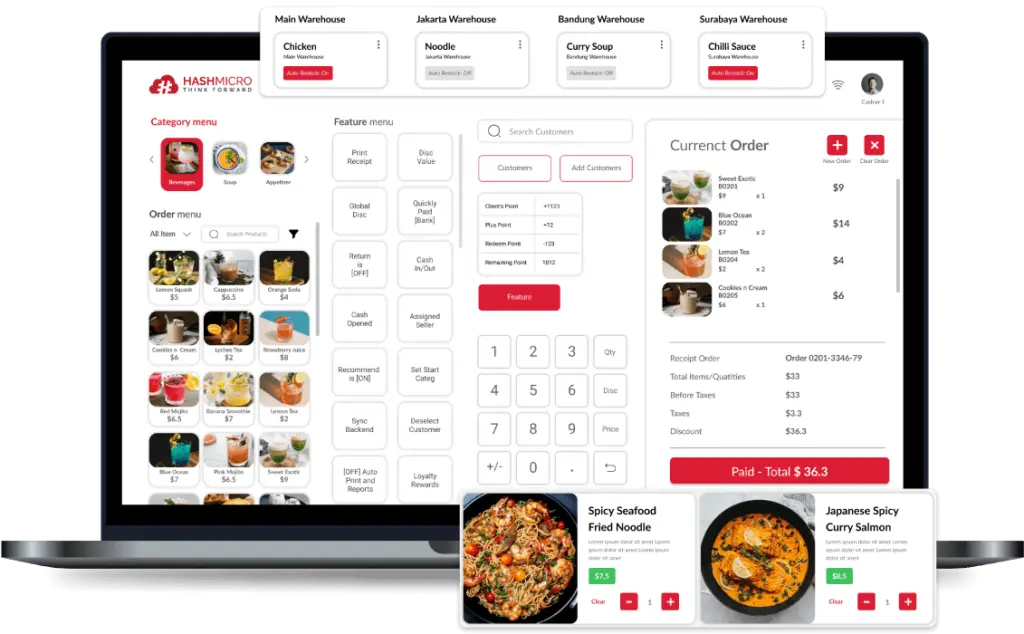
HashMicro’s POS Software offers an all-in-one solution tailored for retail, F&B, and hospitality industries. It simplifies day-to-day tasks by combining tools for handling sales, inventory tracking, customer data, and financial reporting to streamline and optimize operations.
Its intuitive design lets users monitor sales trends, manage stock in real time, and automate essential accounting functions. Whether running a small shop or a growing chain, the system easily adapts to your scale and operational needs.
HashMicro integrates effortlessly with other business systems, such as HR, purchasing, and inventory software. It also runs effectively offline, ensuring uninterrupted service even during network disruptions.
Key features of HashMicro’s POS Software:
- Point of Sale (POS): A robust POS system to handle orders, process various payment methods, and synchronize with other modules for seamless transactions.
- Accounting Tools: Integrated accounting modules help track expenses, manage budgets, and generate detailed financial reports.
- Inventory Management: Offers real-time stock tracking, supplier coordination, and optimized purchasing to reduce waste and avoid shortages.
- Multi-BoM Management: This feature enables businesses to manage multiple product or service configuration versions. It helps maintain consistency, reduce material waste, and streamline production or service customization.
- Automated COGS: Calculate the Cost of Goods Sold automatically by tracking the quantity and price of items used to create a product or fulfill a service. It provides accurate real-time financial data, manages profit margins, and reduces manual accounting tasks.
- Loyalty Points Management: Many POS systems include loyalty program features that let businesses set up rewards systems based on customer purchases. Whether it’s points, discounts, or exclusive offers.
| Pros | Cons |
|
|
2. Loyverse
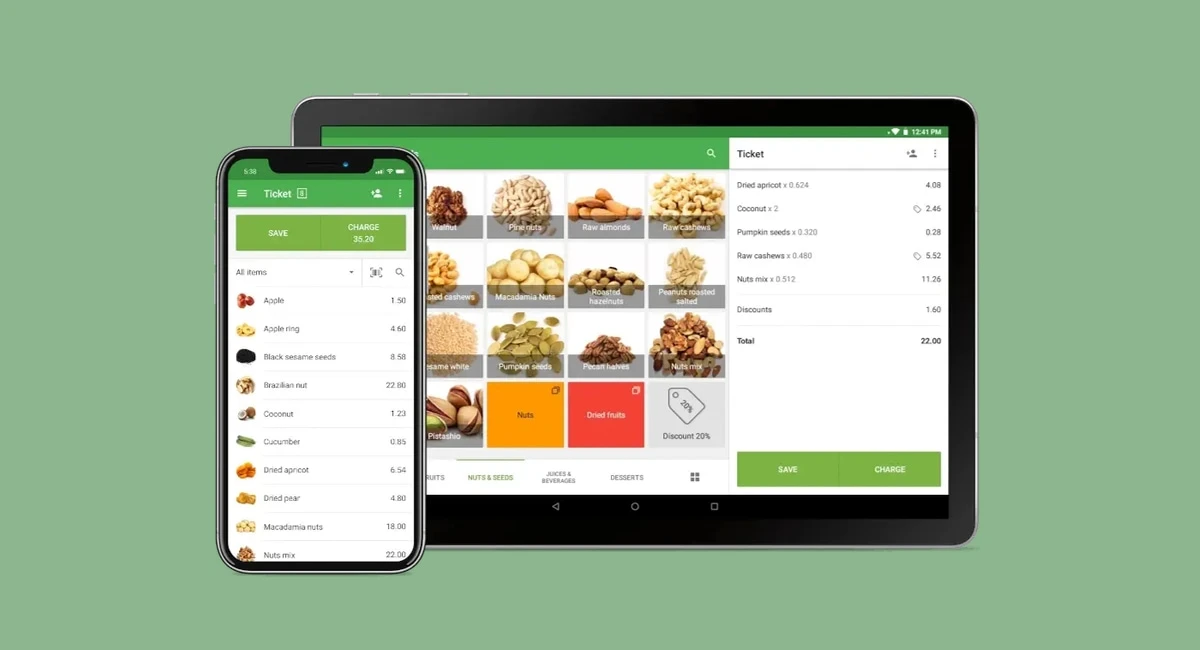
Lovyerse provides a free POS system with features like mobile and tablet compatibility, inventory tracking, basic user access controls, and built-in CRM tools. Lovyerse does not support popular local payment methods in Singapore, making it a better fit for small businesses outside the Southeast Asian market.
| Pros | Cons |
|
|
3. Revel
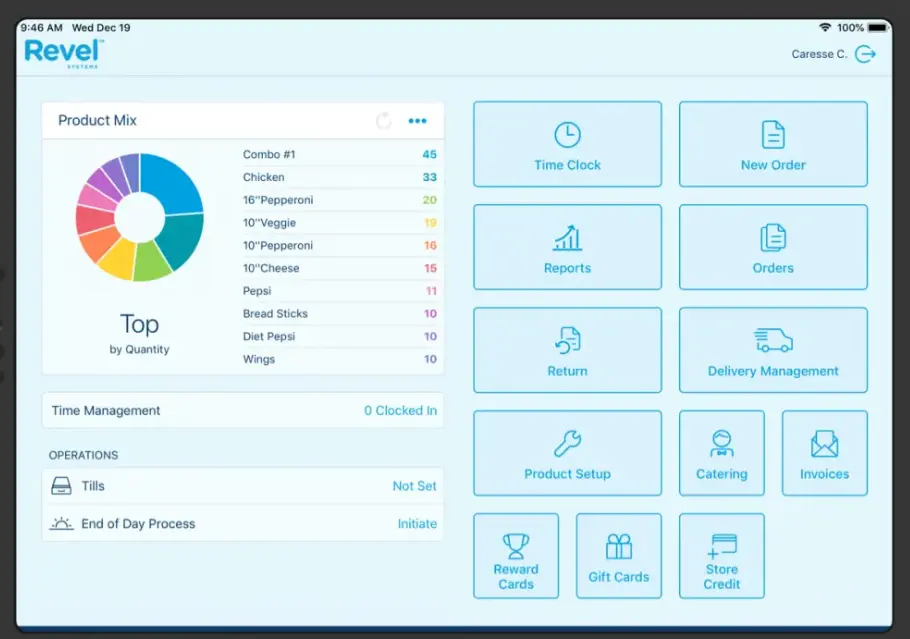
Revel’s cloud-based POS solution in Singapore is designed exclusively for iPad use. This setup supports multi-location operations, real-time analytics, and efficient order processing.
At the same time, it offers tools such as conversational ordering for quicker checkout and a dedicated enterprise plan with features like delivery tracking and online ordering integration.
| Pros | Cons |
|
|
4. Shopify

Shopify’s POS system is integrated with every Shopify subscription, offering a convenient solution for businesses already using the platform. It provides essential tools for managing products and inventory, making it suitable for straightforward retail operations.
However, key features such as staff access controls and detailed analytics are only accessible through the Shopify POS Pro version, which requires an additional S$132 on top of your regular Shopify subscription.
| Pros | Cons |
|
|
5. VendPOS by Lightspeed
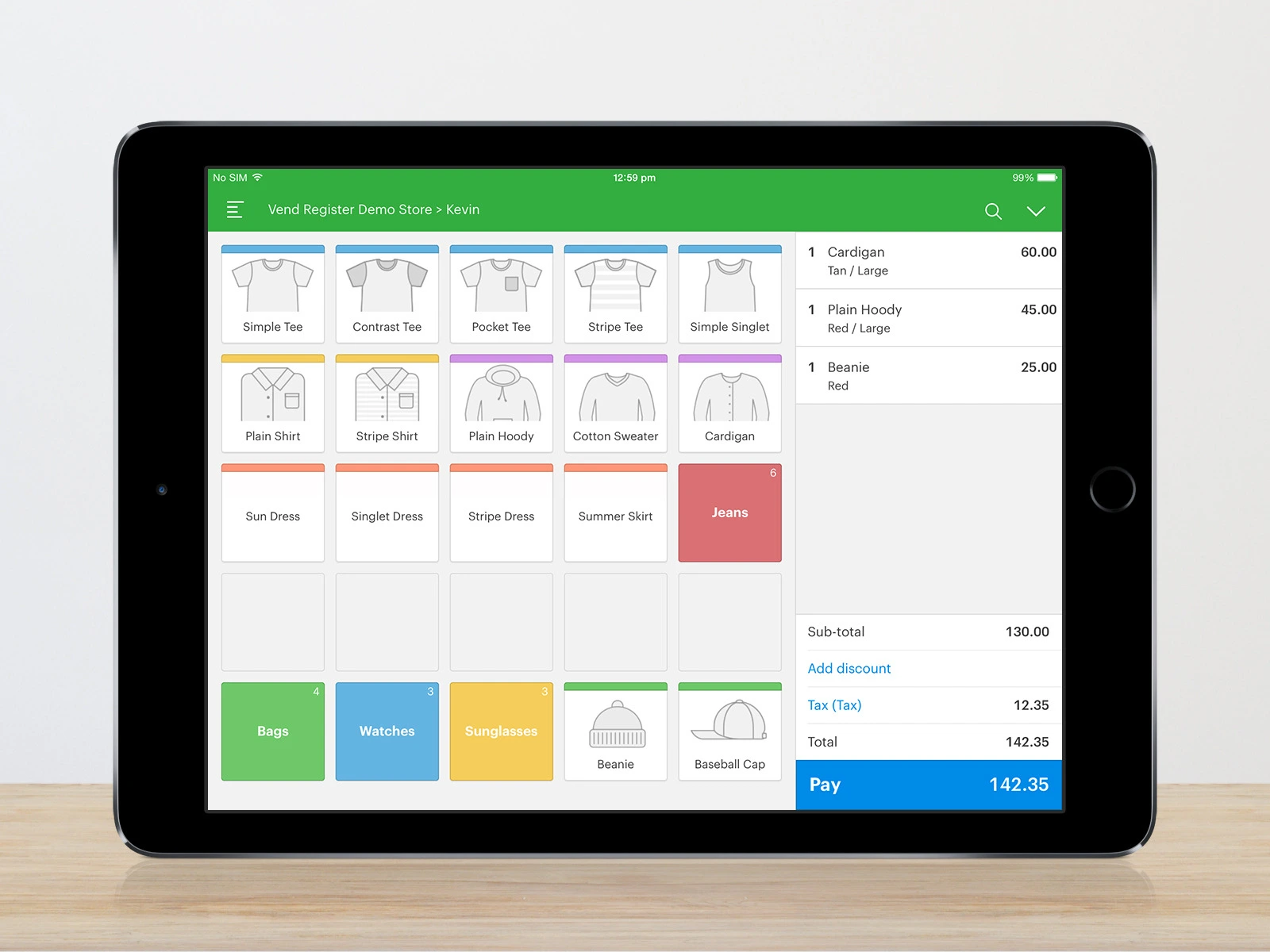
VendPOS offers inventory control and multi-store functionality. The POS machines are designed to handle complex retail environments efficiently and seamlessly support businesses managing stock across various branches.
VendPOS has no free version, and the costs can add up quickly. Each new store location costs US$89, and additional registers under the basic plan cost US$39 per month.
| Pros | Cons |
|
|
6. HitPay
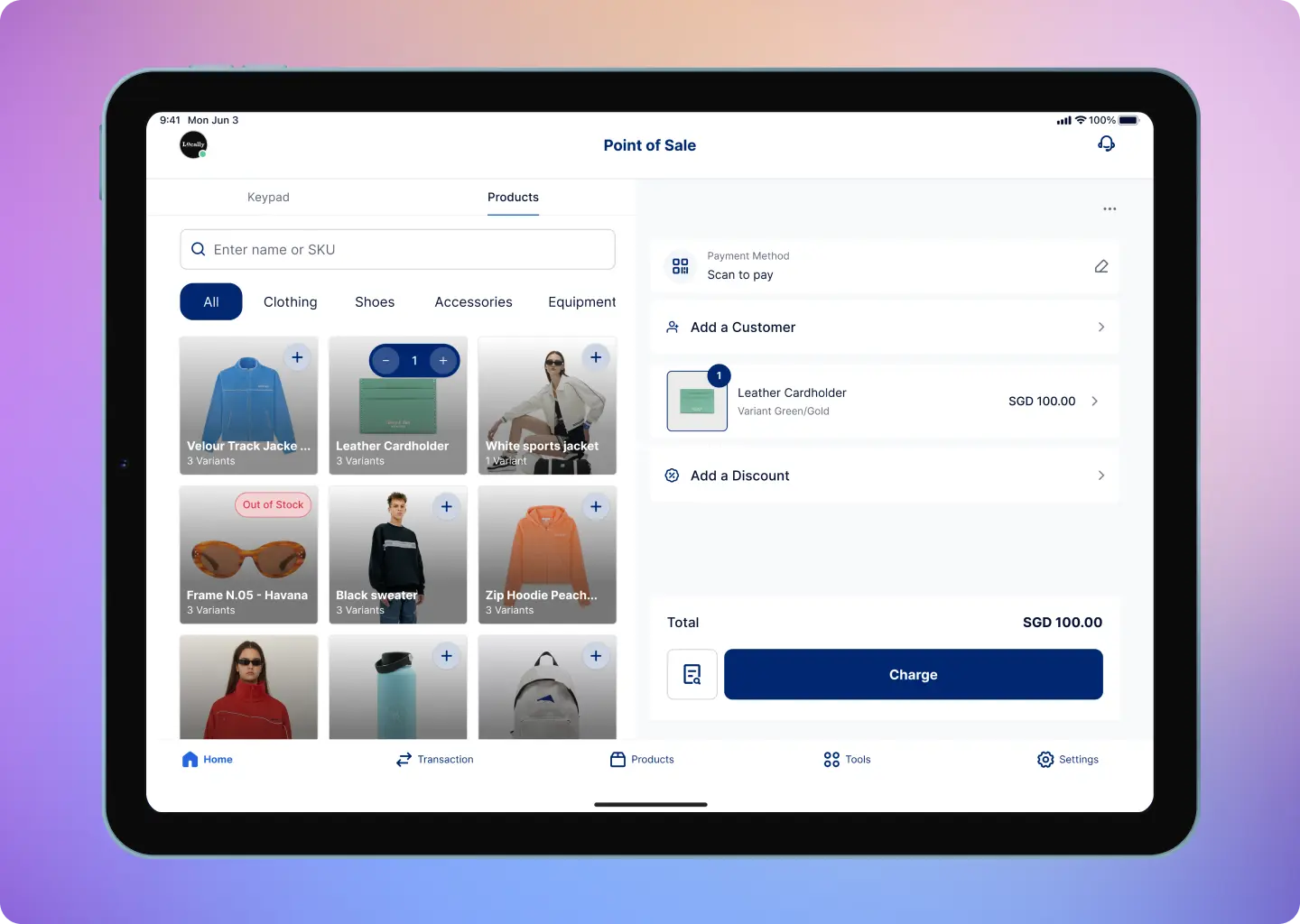
HitPay POS offers a full range of features, such as real-time inventory monitoring, flexible pricing setup, unlimited product listings, and support for multiple outlets without charging monthly fees. For small enterprises eyeing regional growth, HitPay supports many local payment options across Southeast Asia and key international markets.
| Pros | Cons |
|
|
7. Mega POS
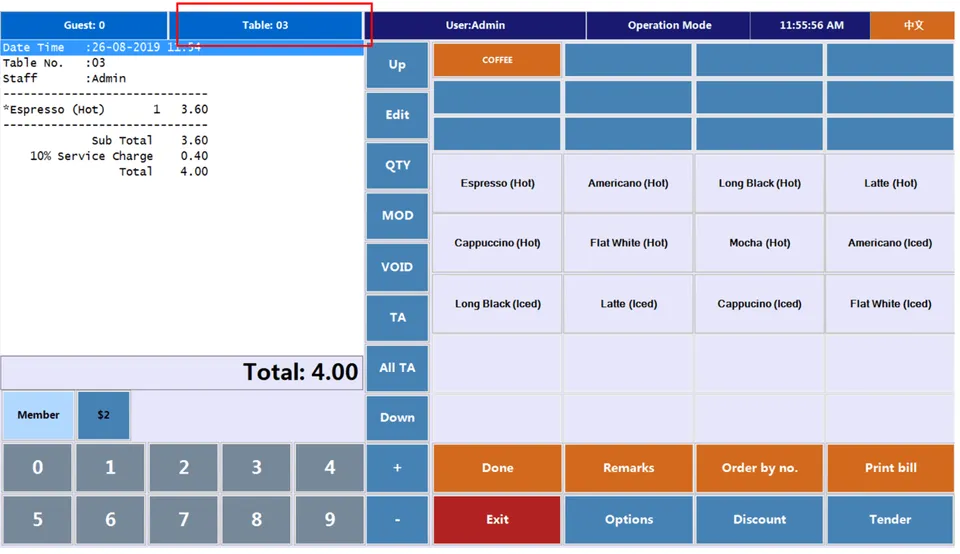
MegaPOS offers optional features and integrations tailored for industries like F&B, retail, and beauty services. Government subsidies can significantly reduce upfront investment for SMEs and small businesses in Singapore, making it an attractive option for those seeking an adaptable POS system.
| Pros | Cons |
|
|
8. Waffle POS
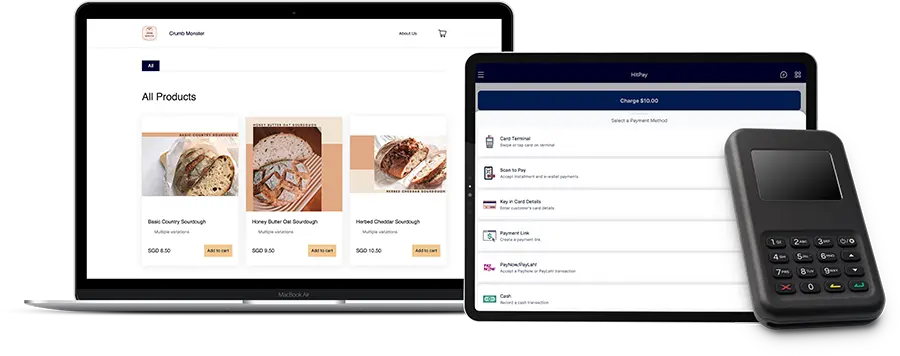
Waffle POS offers tailored sales reporting and CRM capabilities that help F&B businesses track customer habits and reward loyalty. Its adaptable menu setup is ideal for eateries with seasonal offerings or complex customization needs.
The system also connects with key local payment platforms like GrabPay and supports food delivery services such as FoodPanda and Deliveroo. However, it may not suit businesses aiming to expand internationally or seeking seamless integration with e-commerce platforms.
| Pros | Cons |
|
|
9. Qashier
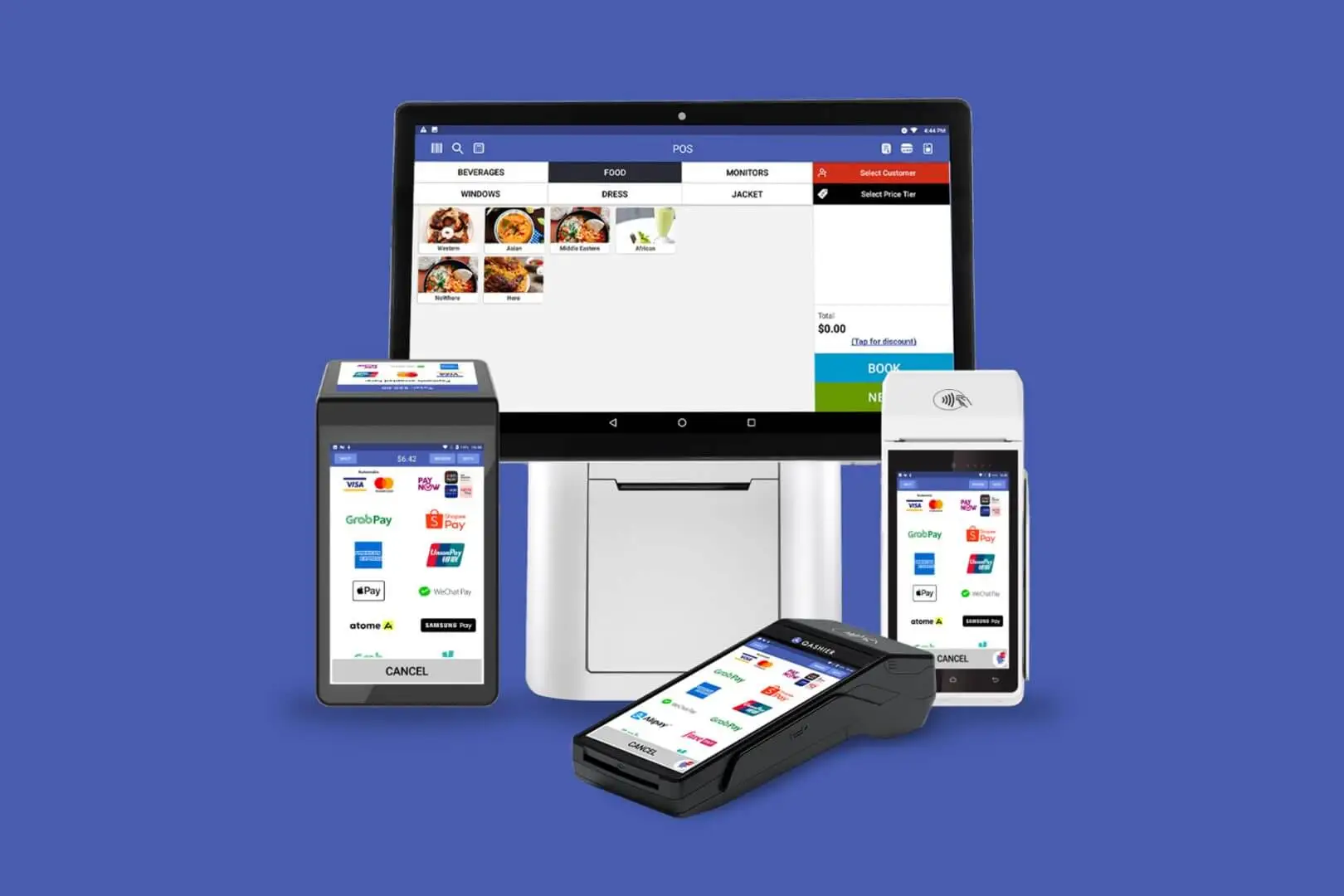
Qashier is a POS system for F&B businesses with built-in online ordering tools and delivery platform integrations. While it comes at a higher price point, eligible SMEs in Singapore can receive up to 50% support through the Productivity Solutions Grant (PSG).
| Pros | Cons |
|
|
Conclusion
Selecting the right POS software Singapore is a vital choice that can significantly influence your business’s efficiency and growth. A reliable POS system helps streamline daily operations, improve productivity, and support expansion in today’s competitive market.
HashMicro’s POS software offers a complete solution with a user-friendly interface, powerful features, and smooth integration with other business systems. It makes it easier for businesses to manage sales, inventory, and customer relationships while enhancing overall operational control.
For Singapore-based businesses seeking to enhance operational capabilities and workforce productivity, the NTUC CTC Grant also offers significant financial support. Through this initiative, eligible companies can receive up to 70% funding to adopt digital solutions such as HashMicro.
Explore today’s free demo to transform your business processes and maximise your potential with HashMicro’s POS software!
Frequently Asked Questions
-
What does POS stand for in software?
A point of sale (POS) is the hardware and software merchants use to process payments and complete customer purchases. A POS transaction may occur in person or online, with receipts generated in print or electronically.
-
What is a POS vs a POS system?
A POS (Point of Sale) system is software that helps merchants process payments and manage their sales operations. While a POS can sometimes refer to a physical device, in this case, we’re talking about a virtual system that operates on your computer, tablet, or smartphone.
-
Is POS a type of ERP?
A POS system consolidates and provides access to all your transaction data within one platform, whereas an ERP system goes beyond resource management to include strategic planning and business growth. ERP involves not just automation, but complete digitization of processes.


